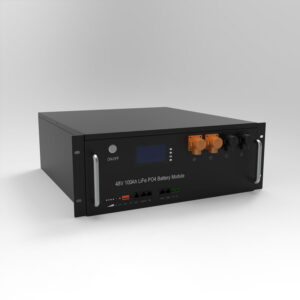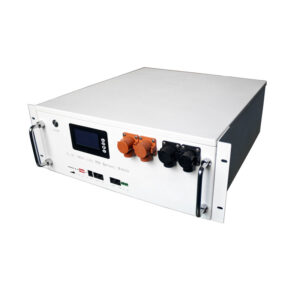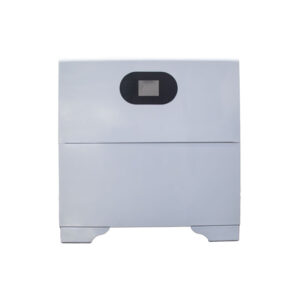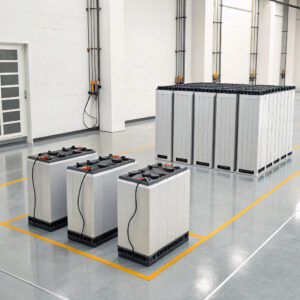Are you tired of unexpected power cuts? Do rising electricity costs worry you? This article explores the best ways to capture and use energy, giving you more control.
The best energy storage system for many people, especially for homes, uses lithium-ion batteries. This is because they are very efficient, hold a lot of energy for their size, and their prices are dropping, making them a great choice.

Picking the right energy storage can seem hard. There are many choices available. It is important to find a system that truly fits what you need. This guide will help you understand the key points. We want you to feel good about your decision. So, let's look at what makes an energy storage system the best for you.
What is the best energy storage technology?
Are you looking for the right energy storage tech? Do you feel lost with all the options? We will make clear the top energy storage technologies you can get.
Often, the best energy storage technology is lithium-ion batteries for many uses. They work well, store lots of energy in a small space, and are getting cheaper. This makes them a strong option.

When I talk with clients about energy storage, they often ask about the technology first. There are several types, and each has its own strengths. For example, pumped hydro storage1 is excellent for very large, grid-level storage, but it needs specific geography, like mountains and reservoirs. Lead-acid batteries are an older technology. They are cheaper to buy at first but are heavier, do not last as long, and store less energy compared to newer options. Then there are flow batteries2. These are interesting for storing energy for long periods and can be made very large, but they are often more complex and not as compact.
For most homes and many businesses, lithium-ion technology is usually the best. At Daopulse, we have specialized in making lithium batteries for over 12 years through OEM/ODM. I have seen this technology improve so much. Future improvements will make them even more efficient and greener. Development also aims to make them more convenient to install and use. The already falling costs show progress towards better cost reduction, too. This is why many brand owners, wholesalers, and retailers we work with, especially in countries along the "Belt and Road," choose lithium-ion for their home energy storage.
What is the most efficient energy system?
Do you want an energy system that wastes very little power? Are you confused by efficiency numbers? We will explain what makes an energy system truly efficient.
The most efficient energy system is one that loses the least amount of energy during storage and when you use it. Lithium-ion battery systems usually have high round-trip efficiency, often over 90%, making them very good for managing power.

Efficiency is very important in energy storage. You want to get back most of the energy you put in. This is called "round-trip efficiency." If a system has 90% round-trip efficiency, it means for every 10 units of energy you store, you get 9 units back. The other 1 unit is lost, usually as heat. In my work at Daopulse, focusing on system efficiency is very important for giving good value.
Several things affect how efficient an energy system is.
Factors Impacting System Efficiency:
- Battery Chemistry: Lithium-ion batteries, which we focus on, are naturally more efficient than older types like lead-acid.
- Battery Management System (BMS): A good BMS controls charging and discharging. It protects the battery and helps keep it efficient for a long time. This is a key part of the systems we help design for our OEM/ODM partners.
- Inverter: The inverter changes DC power from the batteries to AC power for your home, and the other way around. The inverter's quality and efficiency are important.
- Temperature: Very hot or cold temperatures can affect how well a battery works and its efficiency. Good systems manage temperature.
High efficiency saves energy and money. It also means you use your stored energy well, especially with solar panels. Future systems will be even more efficient. This will help provide longer backup times from the same battery size. They will also be greener by wasting less energy. Smart BMS features will make them more convenient to manage.
What is the most efficient energy storage method?
Are you searching for the best way to save stored energy? Are you tired of energy going to waste? We will show you the most efficient methods to store power.
Lithium-ion batteries are one of the most efficient energy storage methods right now for many different uses. This is especially true for homes, because they store a lot of energy and are very good at charging and discharging.

When we discuss efficient energy storage methods, we are looking at how well different approaches hold onto energy. Some methods are better for large-scale needs, while others suit smaller applications. For example, mechanical storage like pumped hydro can be efficient, but it needs specific locations. Flywheels can offer high efficiency for short bursts of power, but they do not store a lot of energy. Thermal storage is good for heating and cooling, but it is not always the best for general electricity needs.
For storing electricity that you can use around your home or business, chemical storage in batteries is usually the most practical and efficient method today. Among batteries, different types have different efficiencies. As I mentioned, lead-acid batteries are less efficient than lithium-ion batteries. This is because they have higher internal resistance and lose more energy during charging.
Lithium-ion batteries, the kind we at Daopulse have focused on for over a decade, perform very well here. Their current efficiency makes them great for solar energy storage. Future improvements will lead to even more efficient storage, which means less wasted energy, making them greener. Development is also aimed at making them more cost-effective and easier to install, which means more convenient. Longer backup time is a direct benefit of better efficiency and energy density.
Which is the best source of energy storage?
Are you wondering where you should store your power? Are you unsure about the best 'container' for energy? We will identify the best sources for energy storage available today.
For most homes and many businesses, advanced batteries, especially lithium-ion types, are the best "source" or way to store electrical energy. They are flexible and perform well, making them ideal.
When we talk about a "source of energy storage," we are really talking about the technology or medium used to hold the energy. It is not about where the energy originally came from, like solar or wind. It is about the device that stores it. From my experience at Daopulse, working with international markets along the "Belt and Road" initiative, batteries have become the most important "source" for local energy storage.
Why are batteries, especially lithium-ion, seen as the best storage medium for so many uses today?
Key Attributes of Batteries as a Storage Medium:
- Scalability: You can create battery systems of almost any size. This ranges from small power banks to large systems for the power grid. Our home energy storage products fit an important part of this range.
- Modularity: You can often add more battery capacity if your needs grow.
- Portability/Installability: Compared to options like pumped hydro, batteries can be installed almost anywhere. This makes them very convenient.
- Fast Response: Batteries can release stored energy very quickly. This is great for power backup or helping the grid.
- Integration with Renewables: They are perfect for storing energy from sources like solar and wind, which are not always available. This makes renewable energy more reliable. This is a big reason why the brand owners, wholesalers, and retailers we serve choose them.
At Daopulse, we believe lithium batteries are key to empowering our world with cleaner, more reliable energy. Our 12 years of OEM/ODM experience in producing home energy storage lithium battery products helps us provide high-quality, efficient solutions. The future of energy storage will likely see batteries become even more convenient to integrate, more efficient in how they work, made with greener processes and materials, available at a lower cost, and able to provide longer backup times. This directly reflects my insight that future storage will be more convenient, efficient, green, cost-effective, and offer longer backup.
Conclusion
Lithium-ion is often best for energy storage due to its efficiency. Future batteries will be even more convenient, efficient, green, cheaper, and offer longer backup.


